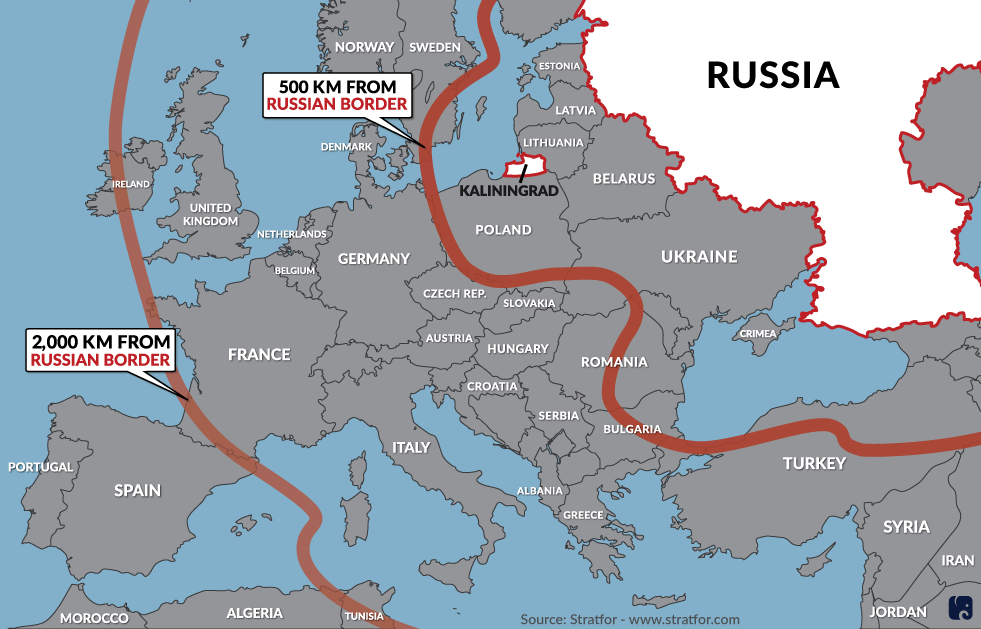A report from the Republican Study Committee
- Since 2014, Russia has violated the Intermediate-Range Nuclear Forces Treaty by developing a ground-launched cruise missile.
- Secretary of State Pompeo joined NATO in declaring that Russia was in material breach of the treaty on December 4, 2018. Russia had 60 days to return to compliance and did not do so.
- On February 2, 2019, the United States suspended its compliance with the INF Treaty due to Russia taking no steps to address its violations. Under the terms of the treaty, the U.S. will withdraw formally from the INF Treaty in six months.
Russia has been violating the Intermediate-Range Nuclear Forces Treaty since at least 2014, when it began developing an intermediate-range, ground-launched cruise missile. The INF Treaty prohibits ground-launched ballistic and cruise missiles, both nuclear and non-nuclear, with ranges between 500 and 5,500 kilometers, i.e., 300 to 3,400 miles. Russia’s violation of the treaty poses a significant threat to our European allies.
EUROPEAN ALLIES IN RANGE OF NEW RUSSIAN MISSILES
President Ronald Reagan and Soviet leader Mikhail Gorbachev signed the INF Treaty in 1987. At the time, the United States canceled a number of weapon systems including the Pershing ballistic missile program, and Russia and the United States destroyed thousands of weapons.
Beginning as early as the mid-2000s, the U.S. continued to comply with the INF Treaty while Russia did not, a common theme with U.S.-Russian arms-control treaties. Director of National Intelligence Dan Coats has described how Russia violated the treaty by testing and flying a missile, the SSC-8, more than 500km. In recent months, Russia has deployed several operational battalions of the SSC-8 missile.
Any intermediate-range missile deployed in Russia poses significant risk to our European allies by making them much more vulnerable to a rapid attack. Russia would be able to threaten our allies in a way that we could not easily counter. The U.S. would be left with much weaker deterrence and defense capabilities.
In addition, China is not a party to the INF Treaty and is developing its own intermediate-range weapons. While the primary reason for withdrawing from the INF Treaty is Russia’s violations, the Trump administration is very concerned about our inability to counter Chinese aggression if we do not have intermediate-range forces to help defend our allies and interests in Asia. President Trump stated his openness to a future INF Treaty that could include China in the State of the Union address. He said that without a new treaty America would “outspend and out-innovate all others” when it comes to military capabilities. China has expressed opposition to a multilateral arms control treaty.
NATO SUPPORT FOR U.S. SUSPENSION OF COMPLIANCE
In a sign of the administration’s successful diplomacy with our strongest allies, NATO has announced its full support for the U.S. suspension of compliance with the INF Treaty. On December 4, 2018, Secretary of State Mike Pompeo joined NATO in declaring Russia to be in “material breach” of the treaty and warned the Kremlin to change course. Under the terms of the treaty, Russia had 60 days to return to compliance with the agreement. NATO has said if Russia does not comply with the treaty, it will take action to ensure the defense of member nations. The organization noted that “Russia will bear sole responsibility for the end of this treaty.”
On February 2, 2019, the United States suspended our compliance with the INF Treaty due to Russia taking no steps to address its violations. Under the terms of the treaty, the U.S. will withdraw formally from the INF Treaty in six months.
ADDITIONAL U.S. RESPONSE TO RUSSIA’S VIOLATION OF INF
Withdrawal is not the only option available to pressure the Russians into complying with the INF Treaty. The U.S. could notify Russia that we do not plan to extend the New START treaty when it expires in February 2021. The United States already complies with New START’s limits on deployed nuclear warheads and delivery vehicles.
Last year, the administration began research and development of conventional ground-launched intermediate-range systems as part of its response to Russia’s violation of the treaty; these efforts could be accelerated.
Currently, the U.S. relies primarily on high-yield nuclear weapons to respond to a nuclear attack. However, the U.S. could accelerate development and fielding of low-yield nuclear weapons and sea-launched cruise missiles. By having a wide spectrum of response capabilities and weapons we can launch from land, air, and sea, we can better deter Russian aggression.
